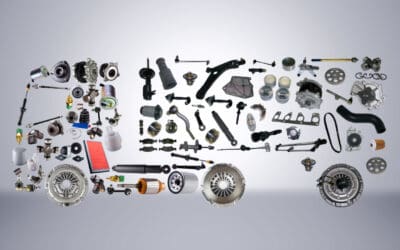
You’re likely familiar with the term “exit interview.” It’s a term that applies to the interactions between an existing employee and, typically, the HR department when an employee gives notice—or via a survey administered after they have left for another position. The exit interview’s purpose is to determine what factors may have led to an employee’s decision to leave the organization, to identify trends that might point to opportunities for improvement and, ultimately, to make changes to company policies, practices or culture to help stem the tide of turnover.
Stay interviews serve a similar purpose. The difference is that they’re conducted before an employee gives notice. They’re an opportunity to formally both gather feedback from employees about what they like, and may not like, about their work and the work environment, and to explicitly convey to the employee how much they are valued. Stay interviews also can be a chance to find out about employees’ personal and professional goals to see how the company might be able to support the achievement of those goals.
During these challenging and uncertain times, stay interviews can also be a way to stay on top of issues, concerns and worries that employees may have so that you can take steps to minimize those concerns. Conducting these interviews with your drivers, now, can be a key way to keep them on board. Stay interviews offer an opportunity for both sharing and seeking information.
While face-to-face interactions may not be possible or practical, especially in the courier industry, there are other ways to have these interactions including through videoconferencing, telephone and chat. Zoom has become a very popular go-to platform for interactions during the COVID-19 situation. There are, of course, other options like Google Hangouts, GoToMeeting and many others.
Stay Interview Input: The Value of Your Own Data
While general data on trends in why employees choose to look for another employer can be helpful, these results are variable and may not apply directly to your geography, your industry, your company or certain types of positions. Because of this, collecting your own data can provide you with more reliable and valid data.
Exit interview input can be more accurate but this input is also somewhat suspect. Many employees choose not to “burn their bridges” when leaving an organization and may not be brutally honest about the things that caused them to decide to move on. The flip side of this is also true. Some employees may want to “stick it to” the company or their direct supervisor/manager when leaving so their input may be negatively skewed.
Collecting this information through stay interviews can help you get better, more accurate, information that you can use to make changes to help minimize the potential for turnover.
Best Practices for Conducting and Gleaning Value from Stay Interviews
Edith Onderick-Harvey is managing partner of NextBridge Consulting in Andover, Massachusetts. Stay interviews, says Onderick-Harvey are conversations that “a manager has with a high-performing or highly valued employee.” These discussions are designed to tell the manager:
- What will keep the employee with the company
- What might make them decide to leave
- How the manager can support the employee
And, she adds, the stay interview also should answer an important question for the employee: “Am I valued and does this company want to invest in me?”
While stay interviews are typically conducted by managers with their employees, HR also has a role to play in terms of helping to establish the process and record-keeping requirements, training supervisors and managers on how to conduct these interviews, and ensuring that the process does not, however inadvertently, run afoul of labor rules and regulations.
One important policy consideration is whether stay interviews will be held with all employees and, if not, how the organization, HR and managers handle the potential negative impact on employees who have not been identified as high potentials. An argument could certainly be made for using stay interviews with all employees for this reason alone—especially employees in the courier industry. Even under-performing employees may provide valuable information that could help them improve their performance.
But, there is a certain amount of caution to be exercised, says Nannina Angioni, a labor and employment attorney and partner with the Los Angeles-based law firm Kaedian LLP. Organizations need to make sure that these interviews aren’t changing the employment relationship.
“The most significant issue I see with these stay interviews is that if the employee decides to stay, the employee may seek to argue that he/she is now operating under a different set of rules,” says Angioni. Supervisors, managers and HR staff, she says, “need to be careful in what they’re saying to potentially exiting employees – you don’t want to convert an at-will employment relationship into something else.” But she adds: “Stay interviews can be useful tools to improve business operations. The people involved simply need to be trained and clear about what is appropriate to say and what should be avoided.”
Managers should also be careful about making promises or guarantees to employees that may not materialize—for instance, promising an employee a promotion or raise that may not be forthcoming.
Still, stay interviews can serve as a powerful way for companies to ensure that their employees—especially their key employees—know that they’re valued and that they are providing value to the organizations they work for. It’s a small step to take to boost the odds that your top employees will be less likely to consider greener pastures.
If you’re not already using stay interviews, there has probably never been a better time to start. Take this step to ensure that your critical drivers understand their value, that you care about their safety, health and well-being and that you’re interested in hearing from them how you can take actions to boost their job satisfaction and commitment to the organization.







